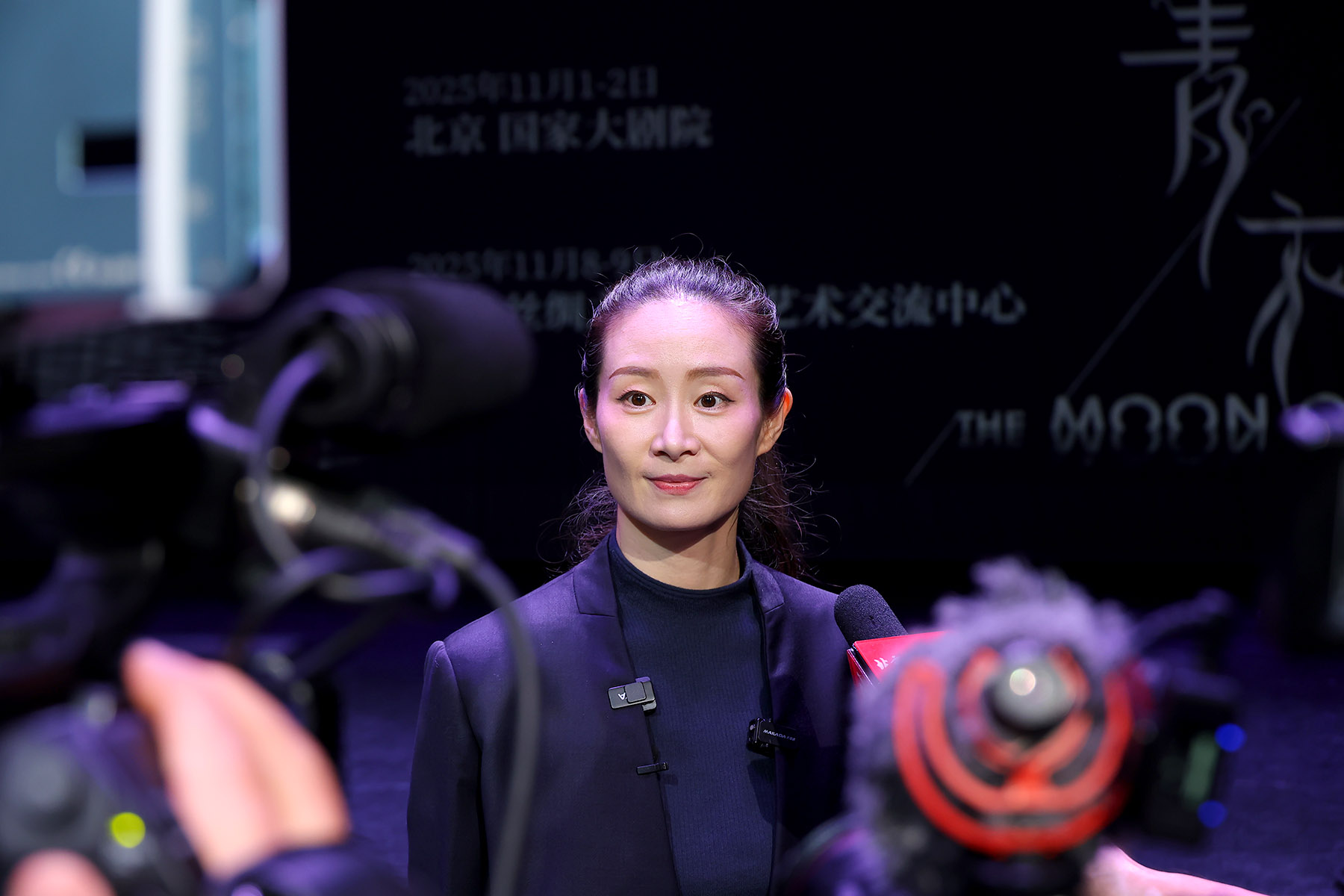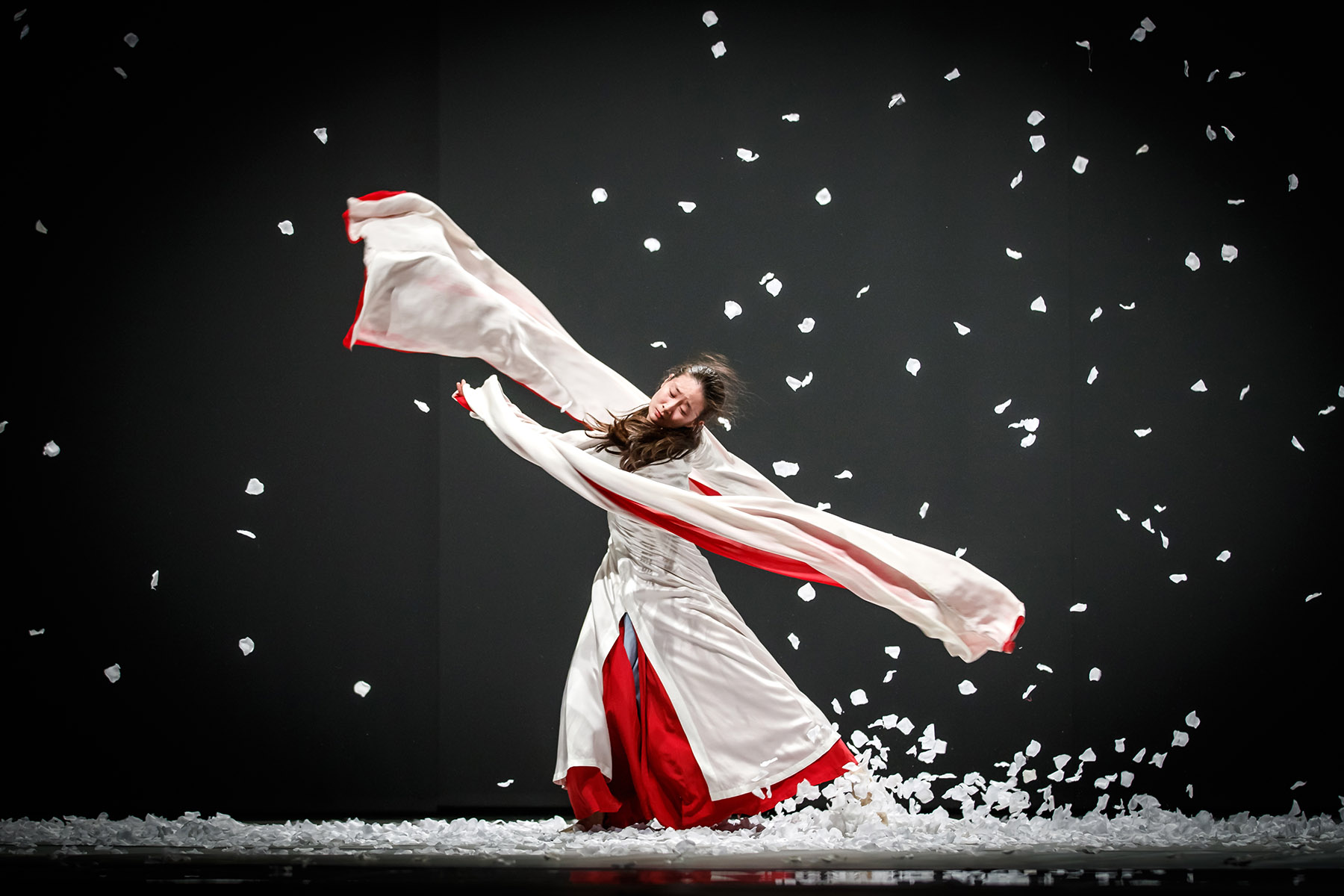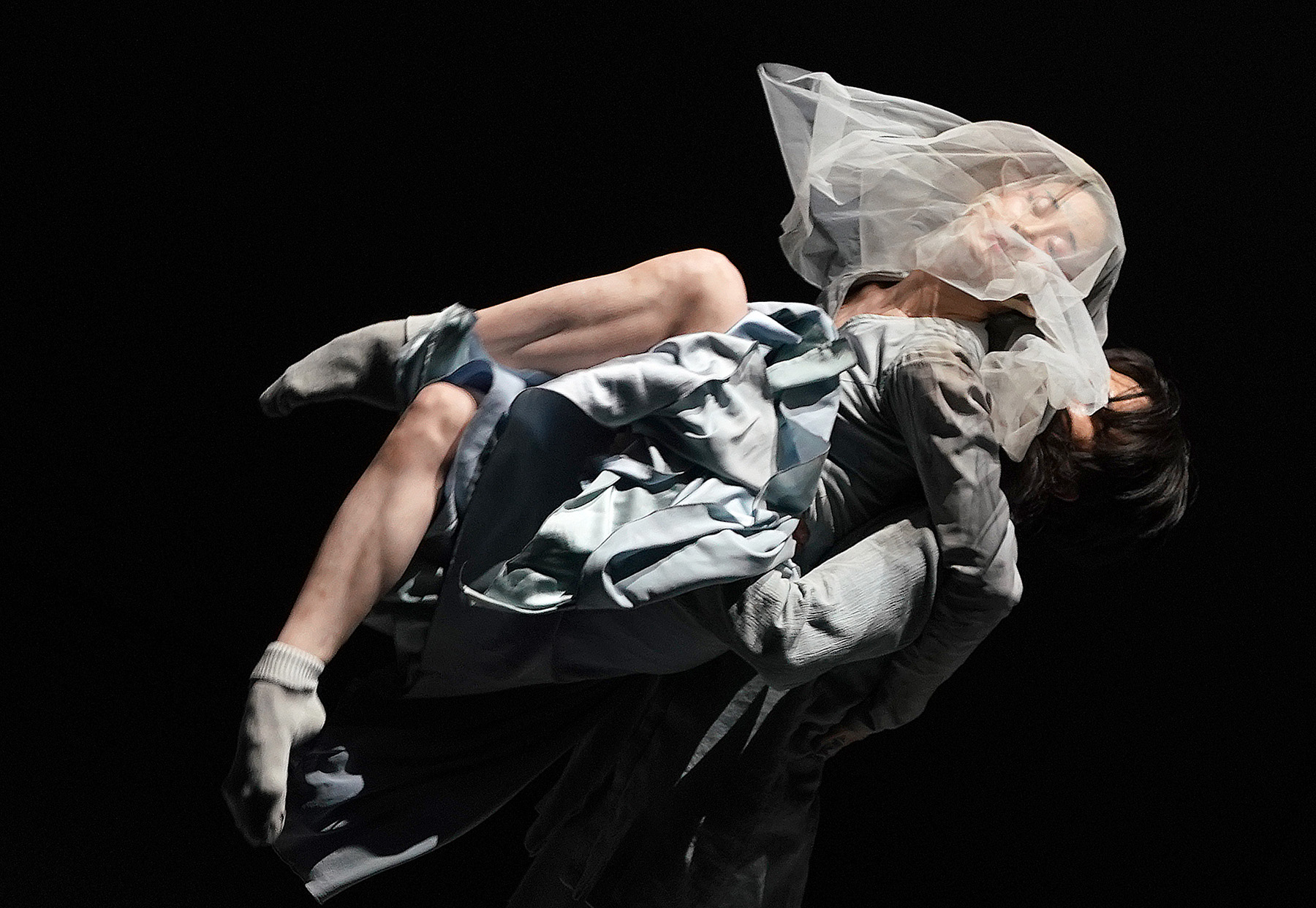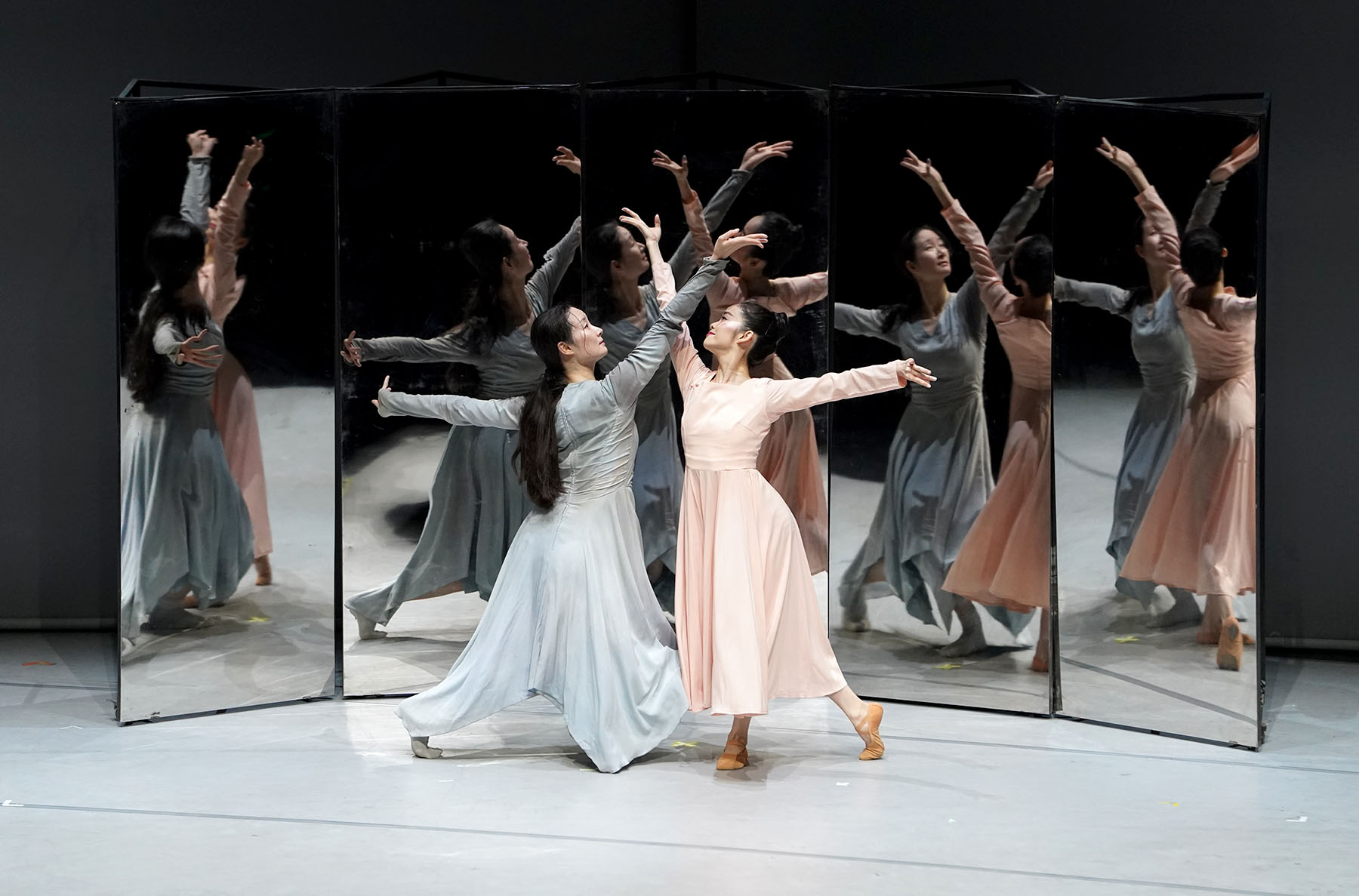Celebrating the 10th anniversary of her original adaptation, performer reflects on her long career of turning literary works into stage productions, Chen Nan reports.

As acclaimed dancer-choreographer Wang Yabin celebrates the 10th anniversary of her groundbreaking dance drama, The Moon Opera, she reflects on a journey that has been both a personal and artistic evolution.
Over the course of 150 performances at home and abroad, the dance drama has become a milestone in her career and also in the country's contemporary dance, blending the profound emotional depth of writer Bi Feiyu's novel of the same title with the dynamic physical expression of dance.
Now, touring nationwide to mark its 10th anniversary, the dance drama will be staged at the National Centre for the Performing Arts in Beijing on Nov 1 and 2 as part of the 2025 NCPA Dance Festival.
READ MORE: Dance shows poetry in motion
The influence of the show extends far beyond this one production, says the dancer-choreographer who appeared at the Beijing Dance Academy on Sept 25.
Reflecting on her performance of the role of Xiao Yanqiu in the dance drama, Wang, 41, says: "After performing in The Moon Opera for the past 10 years, I have experienced 150 instances of aging. This is a form of mental and emotional training, which helps me observe the world more carefully, touch and feel the pulse of life and the warmth of living.
"Through each performance, I felt an emotional maturation and a deepened understanding of the human condition," she adds, noting that the character of Xiao has not only shaped her artistic expression but also her personal growth.

The challenges of repeatedly portraying such a complex role have allowed her to develop a greater sensitivity to the emotions of others, enhancing her ability to connect with both the characters she portrays and her audience.
The drama tells the story of Xiao, a renowned Chinese traditional opera actress specializing in qingyi (female role), which portrays graceful, noble and tragic female characters. As she ages, Xiao grapples with the emotional toll of her performances and the isolation that comes with fame. Torn between her public persona and private pain, she questions her identity and the sacrifices she has made for art.
The novel has been translated into various languages and was nominated for the 2008 Independent Foreign Fiction Prize in the United Kingdom.
Wang's journey with the novel began when she was a student at the Beijing Dance Academy, where she first encountered its poignant narrative. She vividly remembers the moment she read the final line, her senses overwhelmed as snowflakes began to fall outside her window. The emotional weight of the story left her deeply affected.
"I was physically numb yet emotionally stirred after reading the novel," she recalls. "And I realized then that I had found a character that resonated with me on a profound level."

In collaboration with Bi, a Mao Dun Literature Prize recipient, who granted her the rights to adapt his novel, Wang embarked on a creative journey that would shape her artistic identity.
"The adaptation process, which took about five months, was both liberating and rigorous," she says. "But it allowed me to push the boundaries of how we interpret literature through dance."
Bi, who came to Beijing to join the 10th anniversary celebration of the dance drama, has expressed his admiration for Wang's adaptation.
"When I first handed over the rights to Wang 12 years ago, I did not know her well. But after watching the premiere in 2015, I was profoundly impressed," says Bi. "Wang's talent is remarkable. She brought a character that had only existed in my mind to life on the stage. Some of the changes she made in the adaptation went beyond my novel and through her body. She conveyed the feelings that these characters brought her through the dance production. She showcased the inner richness and beauty of the characters."
Bi also emphasizes that The Moon Opera doesn't merely portray a female character but a unique soul from the East.
"Wang captured this essence and made it her own," he says. "I hope it will have a long-lasting impact and that Wang's work will not only belong to Chinese stages but will appeal globally."
Born and raised in Tianjin, Wang began taking dance classes at an early age because her mother wanted her to stay healthy through dance. Wang's talent was recognized at age 9 while she was enrolled at the primary school of the Beijing Dance Academy. There, she received training in classical Chinese dance, ballet techniques and contemporary dance. Later, she studied at the Beijing Dance Academy and won national dance competitions. After graduating in 2003, she began teaching at the university. She continues to be a member of Beijing Dance Academy Youth Dance Company.

Wang founded her own dance studio in 2009. The same year, she launched Yabin and Her Friends, an annual dance production series, which she designed as a platform to bring together Chinese and international choreographers to create an annual dance piece.
The Moon Opera was the seventh production of the Yabin and Her Friends series, which joined artists from China, France, the United Kingdom and Poland.
As Wang says, the production also began a chapter in her career of exploring the intersection between literature and dance. In recent years, she has continued to adapt literary works into dance dramas, drawing on the emotional depth and complex narratives of novels to create multidimensional productions.
ALSO READ: Chinese dance drama builds cultural bridge in LA
In The Lady From the Sea, adapted from the classic play of the same title by Norwegian playwright Henrik Ibsen in 1888, Wang took on the role of Ellida, exploring the shifting spaces of time and memory. With Journey to the West, an international collaboration between Chinese and French artists, she merged the classic Chinese literary work with dance to deliver a powerful narrative of spiritual transformation after enduring hardship.
For Wang, these adaptations are more than just artistic projects — they are channels to connect with the world around her.
"Dance is my best way of communicating with the world, and literature helps me see the world more clearly," she says. "Literary works are like soil for my imagination, grounding me as an artist and allowing me to empathize with the characters in ways that go beyond the surface."
Contact the writer at chennan@chinadaily.com.cn


